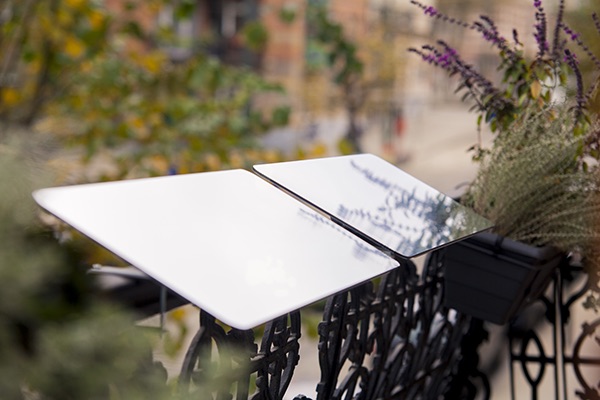The switch to winter time is back! On the night of Saturday 30 to Sunday 31 October 2021, we will gain one hour of sleep. At 3am, it will be 2am, which means that we will set our clocks back one hour. Going to winter time means cold and shorter days. When we get up in the morning, it will be dark and we will just want to stay in bed. How to get through the transition to winter time?
Espaciel shares with you 5 advices to change time smoothly.

Our advice
1. Anticipate
Do you feel that you are going to be disturbed by the time change? The ideal is to anticipate. Sleep specialists estimate that it takes a few days to get back into our rhythms after a time change (for both winter and summer time), so you might as well be prepared! To help you cope with this change, simply go to bed an hour later on Saturday night and you will wake up at the usual time on Sunday morning.
2. Make the most of daylight
The days get shorter in the fall and the change to winter time intensifies this feeling. It is therefore important to take advantage of daylight, as the quality of your sleep depends on it. It plays an important role on your biological clock and your mood. The quality of your sleep is built during the day, thanks to sufficient exposure to light. It is therefore necessary to compensate for winter by various means. At Espaciel, we offer this unique solution, the light reflector, which allows more daylight to enter your home.

3. Resume good habits
Changing time can be an opportunity to resume good habits and a good rhythm of life :
→ Eat better and avoid coffee and energy drinks in the evening. Dine light, and early! Dinner should be the lightest meal of the day.
→ Exercise during the day (not in the evening): this will help you fall asleep.
→ Limit the use of electronic devices before sleep: TV, computer, cell phone, tablet… Relax in a quiet environment.
→ Adopt a good cadence in your schedules: the main thing is to have a regular rhythm: try to go to bed and get up always at the same time.
4. Take advantage of this hour’s difference
As you know, when we switch to winter time, we move back one hour. Don’t change your habits, get up at the same time and make the most of this hour gained. Do some sport for example, meditate or tidy up. This will be an extra hour that will be beneficial for you.
5. Rest
Some people feel very tired after a time change. There is no point in fighting it, you have to listen to your body. Are you still as tired (or even more so)? Are you yawning, your eyelids are heavy and you have a nosebleed? Go to sleep! If necessary, allow yourself a nap of 20 minutes maximum. Naps are a source of creativity and efficiency.
You must ease off during the week following the time change: limit your outings, get as much rest as possible and adopt this new rhythm gently. You’ll see that your fatigue will gradually disappear.
What you need to know
Why do we change time?
The time change system was introduced after the first oil crisis in 1975. Its objective is to reduce the consumption of artificial energy (especially household lighting) and to save energy by following the variations in luminosity throughout the year.
How does the time change work on other continents?
The countries of the northern hemisphere change time on almost the same dates.
Europe: all countries change time on the same day.
United States, Canada: they change to winter time on the 1st Sunday of November.
The countries of the southern hemisphere change time but according to the seasons.
Australia: Daylight Saving Time begins on the first Sunday in October and ends on the last Sunday in March.
Brazil : Daylight Saving Time starts on the third Sunday of October and ends on the third Sunday of February. Daylight saving time is often readjusted according to the Carnival.
These countries that do not change time.
DOM-TOM and tropical countries : they are not concerned by this change. They simply don’t have any. The length of days vary only slightly in these regions.
Russia, Japan, South Korea and Iceland : these countries do not apply it anymore.
>> To discover our Youtube channel as fast as the light: I click here!
You have a dark room and you wish to increase its natural luminosity? Contact us and we will be happy to give you a personalized advice: info@espaciel.com.





